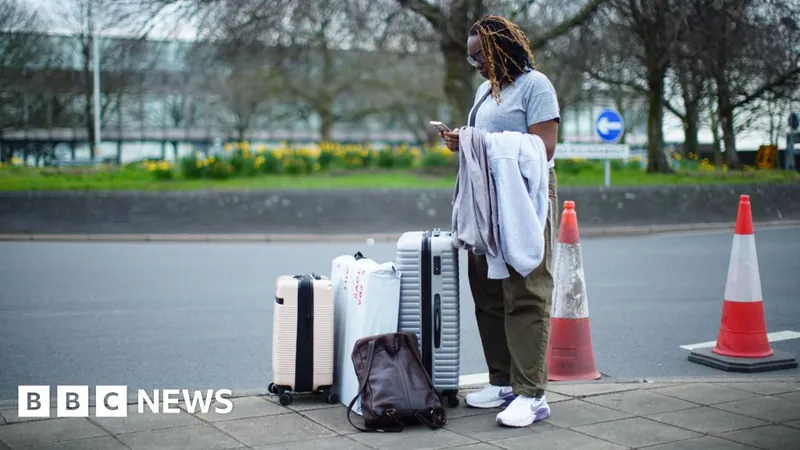
Potential Catastrophe Averted: Heathrow's Power Crisis Could Have Been Foreseen
2025-04-02
Author: Wei
In a shocking revelation, Heathrow Airport officials were warned about vulnerabilities in their power supply just days prior to a disastrous fire that led to a complete shutdown for over 24 hours last month. Speaking before Members of Parliament, Nigel Wicking, the chief executive of the Heathrow Airline Operators' Committee, disclosed that he had raised serious concerns with Heathrow management around the resilience of its power infrastructure.
Wicking stated that he communicated with airport authorities twice in the week leading up to the shutdown, questioning why the airport was not better prepared given its critical role in international travel. “We expect resilience and preparedness; operational continuity is essential,” he remarked. The gravity of the situation only became evident after an electrical substation caught fire, leading to massive disruptions for over 300,000 passengers.
While CEO Thomas Woldbye acknowledged the unprecedented nature of the incident, he defended the prolonged closure by stating that safety had to be the top priority: “If we had got this wrong, we might be sitting here today having a very different discussion about why people got injured,” he emphasized. However, Wicking countered that Terminal 5 could have reopened sooner, expressing frustration at the rollout of emergency protocols.
The fire led to the diversion of 120 aircraft, pitching the airport's ability to handle emergencies into question, particularly as air traffic control ran out of options for rerouting planes within UK airspace. "Aircraft were even sent back halfway across Europe to their original bases, which is far from ideal," Wicking commented. In total, over 1,300 flights were canceled, leaving countless passengers stranded or rerouted.
The incident not only exposed cracks in Heathrow's operational reliability but also raised broader concerns about the UK's energy infrastructure. Woldbye mentioned that reliance on external vendors for power resilience comes at a steep cost, a statement that drew the ire of industry experts questioning the airport's status as "the most expensive airport in the world."
Yet, questions linger about why the fire's impact was so severe. The airport operates with three substations, and the shutdown of just one led to cascading failures across critical systems. Woldbye explained, “When power began to fail, we had no immediate insight into the cause,” further pointing out that it was a matter of safety, as vital systems like runway lights and the control tower functioned as intended.
As Heathrow faces growing scrutiny, the incident serves as a wakeup call. Is the UK prepared for future crises? With air travel continuing to rise and infrastructure aging, the stakes are high. The combination of increased demand and potential delays in upgrades could lead to even more significant challenges going forward. Passengers and airlines alike are left wondering: what measures will be put in place to ensure that such a chaotic scene never unfolds again?


 Brasil (PT)
Brasil (PT)
 Canada (EN)
Canada (EN)
 Chile (ES)
Chile (ES)
 Česko (CS)
Česko (CS)
 대한민국 (KO)
대한민국 (KO)
 España (ES)
España (ES)
 France (FR)
France (FR)
 Hong Kong (EN)
Hong Kong (EN)
 Italia (IT)
Italia (IT)
 日本 (JA)
日本 (JA)
 Magyarország (HU)
Magyarország (HU)
 Norge (NO)
Norge (NO)
 Polska (PL)
Polska (PL)
 Schweiz (DE)
Schweiz (DE)
 Singapore (EN)
Singapore (EN)
 Sverige (SV)
Sverige (SV)
 Suomi (FI)
Suomi (FI)
 Türkiye (TR)
Türkiye (TR)
 الإمارات العربية المتحدة (AR)
الإمارات العربية المتحدة (AR)